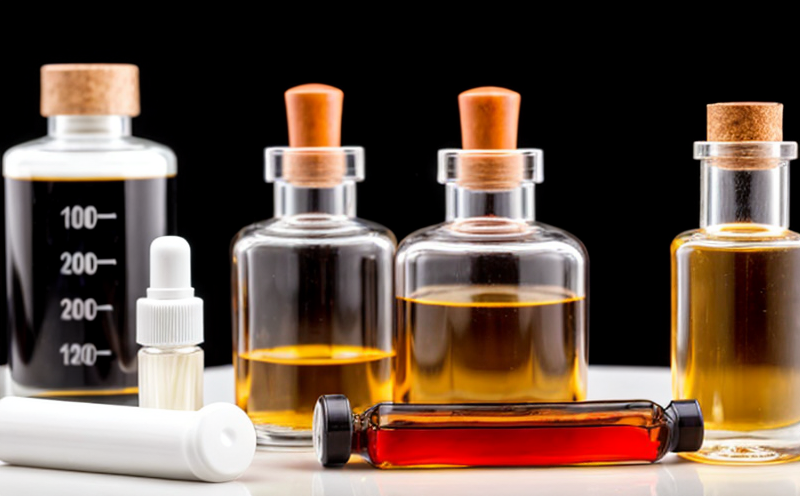Pharmaceutical Plasticizer Testing
The testing of pharmaceutical plasticizers is a critical component in ensuring product quality and regulatory compliance. Pharmaceutical plasticizers are essential additives used to improve the flexibility, durability, and processability of materials used in drug delivery systems. Ensuring that these plasticizers meet stringent chemical analysis standards is crucial for maintaining product integrity and patient safety.
The testing process involves multiple stages aimed at validating the purity, stability, and compatibility of the plasticizer within pharmaceutical formulations. The first step includes sample preparation where raw materials are processed into a form suitable for analysis. This typically involves dissolution in appropriate solvents under controlled conditions to ensure accurate results.
After sample preparation, instrumental analysis is conducted using advanced techniques such as gas chromatography (GC), high-performance liquid chromatography (HPLC), and Fourier-transform infrared spectroscopy (FTIR). These methods allow for precise quantification of the plasticizer components and detection of impurities or contaminants. The acceptance criteria for these tests are defined in accordance with international standards, including ISO 10692:2014 and ASTM E2375-18.
Quality assurance is a key aspect of pharmaceutical testing, ensuring that all processes adhere to established protocols. Compliance officers play a pivotal role in overseeing these tests to ensure adherence to regulatory requirements such as those outlined by the International Conference on Harmonisation (ICH) Q6A and Good Laboratory Practice (GLP). R&D engineers also benefit from this testing process by gaining insights into potential improvements or modifications needed for new formulations.
The importance of pharmaceutical plasticizer testing cannot be overstated. It ensures that all components used in drug delivery systems are safe, effective, and meet the highest quality standards. This not only protects consumers but also helps manufacturers maintain their reputation and market position. By adhering to rigorous testing protocols, companies can ensure they comply with relevant regulations like those set forth by the U.S. Food and Drug Administration (FDA) and European Medicines Agency (EMA).
Customer satisfaction is paramount in this industry. Satisfied customers not only return but also recommend your products or services to others. Ensuring that every aspect of product development meets or exceeds expectations helps build long-term relationships with clients.
Industry Applications
- Ensuring the safety of flexible packaging for pharmaceutical products
- Validating drug delivery systems' integrity
- Verifying compatibility between different components in a formulation
- Confirming adherence to regulatory requirements
- Maintaining quality control throughout production processes
- Aiding research and development efforts by providing data on ingredient performance
- Sustaining compliance with Good Laboratory Practice (GLP) standards
- Promoting trust among consumers through consistent product quality assurance
Why Choose This Test
Selecting the right testing methods for pharmaceutical plasticizers is vital given their critical role in drug delivery systems. By choosing reliable laboratories offering comprehensive testing services, you can ensure that your products meet stringent quality standards and regulatory requirements.
Our experienced team uses state-of-the-art equipment and follows internationally recognized guidelines to deliver accurate results every time. This approach not only enhances product safety but also supports successful submissions during regulatory approval processes.
We understand the importance of maintaining consistency in our testing practices, which is why we invest heavily in training our staff and staying updated on the latest technologies and methodologies. Our commitment to excellence has made us a trusted partner for numerous pharmaceutical companies across various sectors.
Customer Impact and Satisfaction
The impact of thorough pharmaceutical plasticizer testing extends beyond just meeting regulatory requirements; it directly influences customer satisfaction. Satisfied customers are more likely to remain loyal to your brand, leading to increased market share and revenue growth.
In addition, by consistently delivering high-quality products, you can build a reputation for reliability that attracts new clients and fosters long-term relationships with existing ones.
Our focus on quality has earned us numerous accolades from satisfied customers who appreciate our dedication to excellence. We pride ourselves on providing not only accurate test results but also valuable insights into how your plasticizers perform within various applications.





